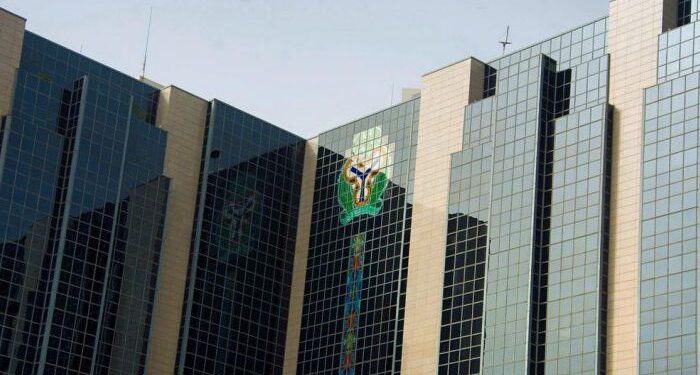Bank customers across Nigeria have expressed strong support for the Central Bank of Nigeria’s (CBN) newly proposed policy mandating commercial banks to refund failed Automated Teller Machine (ATM) transactions within 48 hours. The directive comes as a response to growing public frustration over delayed reversals, missing funds, and unresolved electronic transactions that have long plagued the banking sector.
According to the CBN’s draft guidelines released in October 2025, when a customer uses their own bank’s ATM and a transaction fails—referred to as an “on-us” transaction—the reversal must be processed instantly or within 24 hours if manual intervention is required. For failed transactions conducted on another bank’s ATM, known as a “not-on-us” transaction, the new rule allows banks a maximum of 48 hours to complete the refund.

Many bank customers have hailed the directive as a long-overdue reform. Over the years, Nigerians have faced numerous challenges with failed ATM and Point of Sale (POS) transactions, which often result in debits without cash disbursement. In many cases, customers have had to wait several days or even weeks before their funds were reversed. This recurring issue has not only eroded confidence in digital banking but also discouraged some users from relying on electronic payment channels.
Consumer advocacy groups, such as the Federal Competition and Consumer Protection Commission (FCCPC), have described the new policy as a welcome development that could restore trust in Nigeria’s banking system. The FCCPC commended the CBN for addressing one of the most persistent consumer complaints and pledged to collaborate with the apex bank to monitor compliance once the directive takes full effect. The commission also reaffirmed its readiness to support customers in escalating unresolved issues and ensuring that refunds are made within the specified period.
The CBN’s initiative is also being viewed as a major step toward strengthening financial inclusion in Nigeria. By ensuring that consumers experience fewer setbacks when using electronic payment systems, the policy is expected to encourage more Nigerians to adopt banking technologies such as ATMs, mobile transfers, and POS terminals. Experts believe that dependable and timely refunds could improve public confidence and promote a cashless economy.
Several customers have expressed optimism that the policy will end the era of waiting endlessly for failed transaction reversals. A customer in Lagos noted that the move would “save people from the emotional stress and inconvenience of losing access to their money for days.” Another customer in Abuja said that the policy would make banks more accountable, adding that “if a transaction fails, it’s only fair that the money is returned immediately.”
However, while consumers are optimistic, industry analysts have noted that implementing the new rule may not be without challenges. For the 48-hour refund timeline to be met consistently, banks will need to upgrade their transaction monitoring systems and streamline internal processes. This includes improving interbank reconciliation, automating refund workflows, and enhancing customer service response times. Some banks may also need to strengthen their IT infrastructure to ensure that refund operations are not delayed by system errors or network failures.
Financial experts believe that this reform will push banks to become more transparent and customer-focused. It will also place pressure on institutions that have been slow in resolving complaints to improve their efficiency. For the banking industry, this move could also signify a shift toward global best practices, where failed transactions are typically reversed almost immediately.
Beyond the technical and operational aspects, the CBN’s directive also carries regulatory implications. Banks that fail to comply with the refund policy could face penalties or sanctions under Nigeria’s consumer protection framework. The CBN has signaled its commitment to enforcing the rule strictly once it becomes official, while the FCCPC is expected to play a vital role in overseeing compliance and addressing customer grievances.
The reform aligns with the government’s broader objective of promoting a stable, secure, and customer-centric financial ecosystem. With digital transactions becoming increasingly dominant in Nigeria, ensuring reliability and accountability in electronic payment systems is crucial for sustaining economic growth and public trust.
As the CBN finalizes the draft and prepares for full implementation, both regulators and consumers are hopeful that this policy will mark a turning point in Nigeria’s banking experience. It is expected to significantly reduce customer frustration, encourage the use of formal banking services, and ultimately strengthen the country’s financial infrastructure.
For millions of Nigerians, the 48-hour refund rule represents more than just a regulatory measure—it symbolizes fairness, accountability, and progress in a system that has often left them feeling powerless. If effectively implemented and enforced, this directive could be one of the most impactful banking reforms in recent years, transforming customer confidence and redefining how banks handle service failures.
The policy’s success, however, will depend on strict enforcement and consistent oversight by both the CBN and the FCCPC. With customers watching closely, the expectation is that Nigerian banks will rise to the occasion, prioritizing efficiency and customer satisfaction in a way that restores faith in the nation’s banking system.
Support InfoStride News' Credible Journalism: Only credible journalism can guarantee a fair, accountable and transparent society, including democracy and government. It involves a lot of efforts and money. We need your support. Click here to Donate
